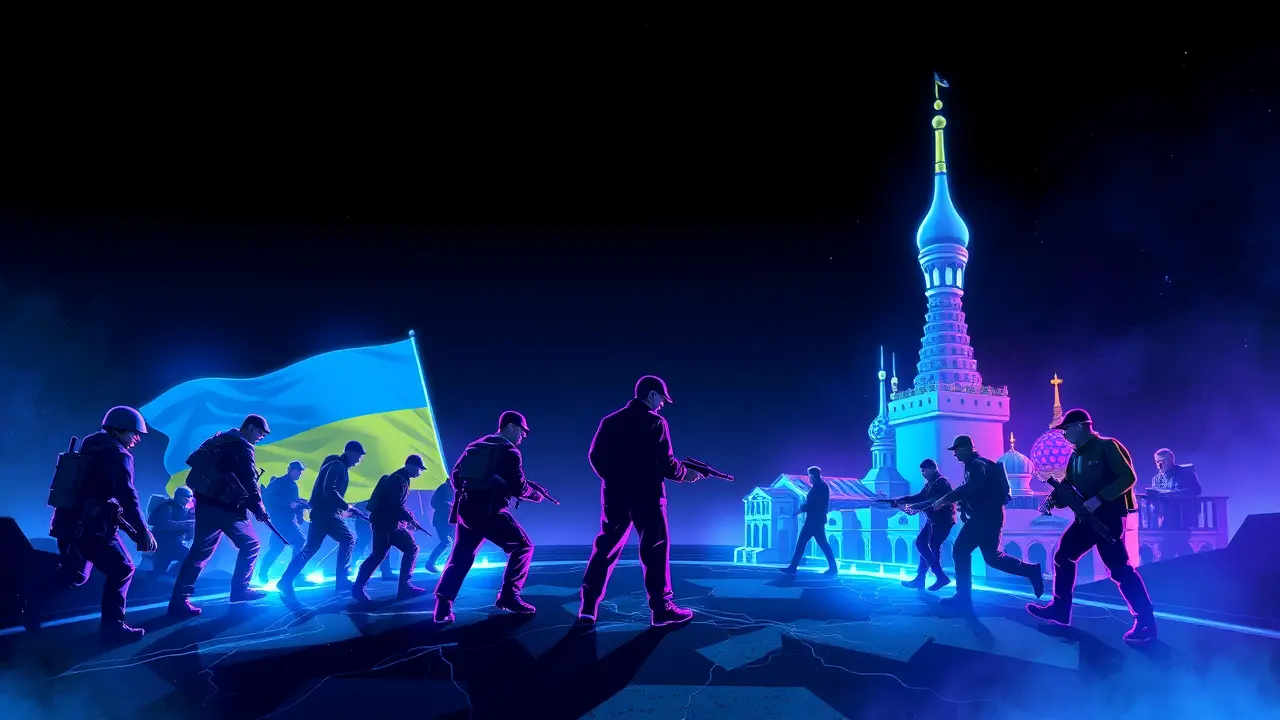Europe Backs Trump's Ceasefire Call, Russia Rejects
In a diplomatic gambit that has sharply delineated the battle lines of modern geopolitical strategy, Europe has thrown its considerable institutional weight behind a ceasefire call championed by former U. S.President Donald Trump, only to be met with an immediate and unequivocal rejection from Moscow, delivered with characteristic bluntness by Russian Foreign Minister Sergei Lavrov, who dismissed any notion of halting the conflict along the current contact line. This swift rebuff is not merely a tactical response to a single proposal but a profound statement of intent, echoing the grim, unyielding stances of historical confrontations where territorial gains were cemented not at the negotiating table but through the brutal calculus of the battlefield.To understand the gravity of this moment, one must look beyond the headlines to the deeper currents shaping this war; the European alignment with Trump’s position signals a significant, albeit fragile, consensus within the EU and NATO, reflecting a growing desperation to stem the human and economic toll of a protracted conflict that has destabilized global energy markets and tested the very foundations of the post-World War II international order. Yet, Lavrov’s dismissal, articulated with the cold precision of a veteran diplomat schooled in the Soviet tradition, reveals Moscow’s strategic calculus: why accept a frozen conflict when military momentum, however costly, offers the prospect of absorbing more territory and forcing a more favorable final settlement? This is a page taken from the playbooks of past empires, where ceasefires were not pauses for peace but opportunities for rearmament and repositioning, a lesson Europe learned bitterly in the 1990s Balkans and which now haunts the plains of Ukraine.Analysts from the Carnegie Endowment and Chatham House note that Russia’s rejection is likely predicated on several factors, including the upcoming U. S.elections, which could see a Trump administration return with a more isolationist stance, thereby weakening Western unity and allowing the Kremlin to press its advantage without the fear of escalated American intervention. Furthermore, the current contact line, which has shifted incrementally but decisively in Russia’s favor after months of grueling artillery duels and drone warfare, represents a costly investment in blood and treasure that Moscow is unwilling to relinquish for a mere truce; instead, they seek a political settlement that legitimizes their territorial acquisitions and undermines Ukrainian sovereignty, a goal that aligns with their long-standing narrative of protecting Russian-speaking populations and resisting NATO expansion.The European endorsement, while symbolically powerful, masks internal divisions—between hawkish Eastern members like Poland and the Baltic states, who advocate for unwavering military support to Kyiv, and more cautious Western capitals such as Paris and Berlin, who fear the economic repercussions of a forever war and the potential for catastrophic escalation. This schism mirrors the historical debates within the Allied powers during the Cold War, where deterrence and détente were constantly balanced, and today, it complicates any unified response to Russian intransigence.The consequences of this stalled diplomacy are dire: a prolonged conflict risks further civilian casualties, a deepening global food crisis as Ukrainian grain exports remain imperiled, and the erosion of international norms against aggression, setting a perilous precedent that could embolden other revisionist powers from Beijing to Tehran. In the grand chessboard of great power politics, Lavrov’s move is a check, forcing the West to either double down on military aid—a path fraught with nuclear risks—or seek a face-saving compromise that might abandon core principles of territorial integrity.As Churchill once remarked in the dark days of 1940, 'an appeaser is one who feeds a crocodile, hoping it will eat him last,' a cautionary tale that resonates today as European leaders navigate the fine line between pragmatism and capitulation. The coming weeks will test the resilience of transatlantic alliances and the strategic patience of a world watching yet another European conflict defy easy resolution, with the specter of a wider war looming should diplomacy fail entirely.
CA
CautiousObserver12 hours ago
interesting move but idk if this changes anything tbh, feels like we've seen this before smh
0
© 2025 Outpoll Service LTD. All rights reserved.
